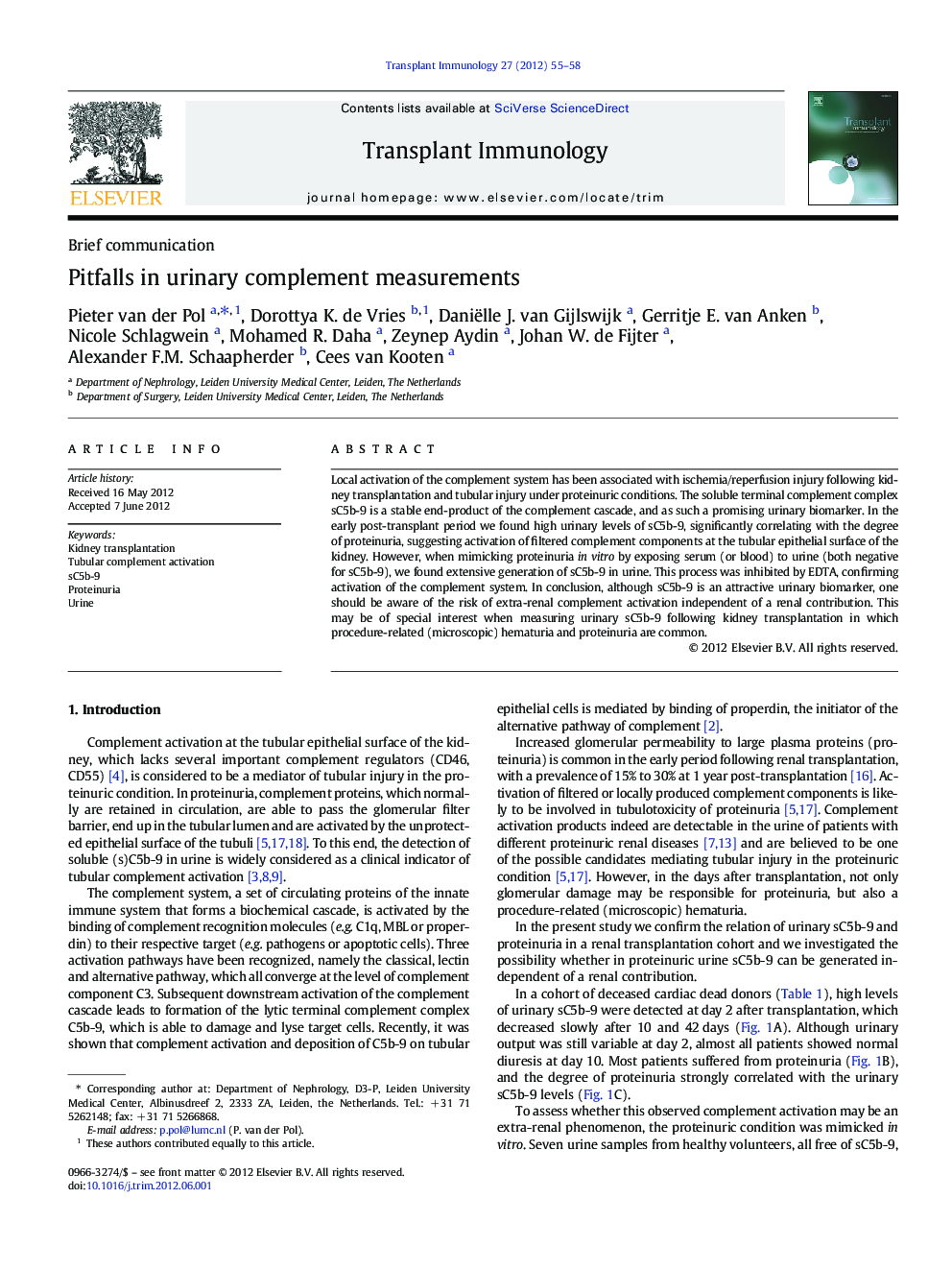| Article ID | Journal | Published Year | Pages | File Type |
|---|---|---|---|---|
| 3392149 | Transplant Immunology | 2012 | 4 Pages |
Local activation of the complement system has been associated with ischemia/reperfusion injury following kidney transplantation and tubular injury under proteinuric conditions. The soluble terminal complement complex sC5b-9 is a stable end-product of the complement cascade, and as such a promising urinary biomarker. In the early post-transplant period we found high urinary levels of sC5b-9, significantly correlating with the degree of proteinuria, suggesting activation of filtered complement components at the tubular epithelial surface of the kidney. However, when mimicking proteinuria in vitro by exposing serum (or blood) to urine (both negative for sC5b-9), we found extensive generation of sC5b-9 in urine. This process was inhibited by EDTA, confirming activation of the complement system. In conclusion, although sC5b-9 is an attractive urinary biomarker, one should be aware of the risk of extra-renal complement activation independent of a renal contribution. This may be of special interest when measuring urinary sC5b-9 following kidney transplantation in which procedure-related (microscopic) hematuria and proteinuria are common.
► High levels of urinary sC5b-9 were observed early after kidney transplantation. ► Levels of sC5b-9 in the urine significantly correlated with the degree of proteinuria. ► Urinary sC5b-9 could be generated after exposure of serum to urine in vitro. ► In proteinuria there is a risk of extra-renal complement activation in the urine. ► Urinary sC5b-9 measurement early after transplantation is therefore troubled.
